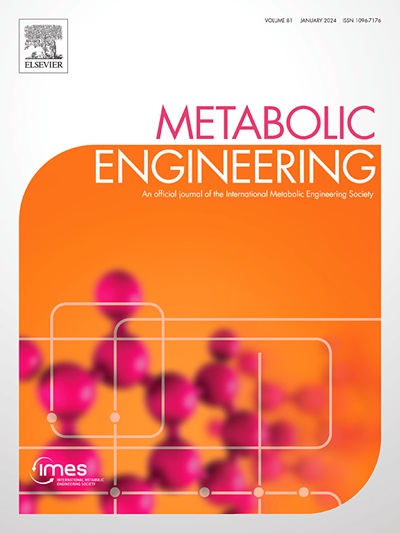Edible fungus Fusarium venenatum: advances, challenges, and engineering strategies for future food production
IF 6.8
1区 生物学
Q1 BIOTECHNOLOGY & APPLIED MICROBIOLOGY
引用次数: 0
Abstract
By 2050, the global population is projected to reach 9.7 billion, necessitating a 70 % increase in traditional agricultural output to meet growing demands. However, critical constraints are emerging as arable land and water resources approach their sustainable utilization thresholds. In this context, ensuring safe, efficient, and sustainable food production has become a pivotal issue intertwined with national economy and people's livelihood. Microbial manufacturing based on microbial chassis and synthetic biology technology represents a transformative approach to future food production. Notably, the edible filamentous fungus Fusarium venenatum serves as an ideal chassis for next-generation future food biomanufacturing. However, there has been a lack of systematic reviews specifically focusing on the development of synthetic biology tools, chassis engineering, and chassis applications for this strain. This paper systematically summarizes the latest significant progress, from the perspectives mentioned above, in the use of F. venenatum for future food biomanufacturing. Furthermore, it discusses potential development directions and challenges, and proposes some available strategies, intending to provide ideas and guidance for the further development of F. venenatum-based future food production systems.
食用菌镰刀菌:未来食品生产的进展、挑战和工程策略
到2050年,全球人口预计将达到97亿,传统农业产量必须提高70%才能满足日益增长的需求。然而,随着耕地和水资源接近其可持续利用阈值,关键的制约因素正在出现。在此背景下,确保安全、高效、可持续的粮食生产已成为关系国计民生的关键问题。基于微生物底盘和合成生物学技术的微生物制造代表了未来食品生产的变革性方法。值得注意的是,可食用丝状真菌镰刀菌是下一代未来食品生物制造的理想基础。然而,对于该菌株的合成生物学工具、底盘工程和底盘应用的开发,一直缺乏系统的综述。本文从以上几个方面系统地总结了维氏霉霉在未来食品生物制造中的应用的最新重大进展。探讨了潜在的发展方向和挑战,并提出了一些可行的策略,旨在为未来以黄曲霉为基础的粮食生产系统的进一步发展提供思路和指导。
本文章由计算机程序翻译,如有差异,请以英文原文为准。
求助全文
约1分钟内获得全文
求助全文
来源期刊

Metabolic engineering
工程技术-生物工程与应用微生物
CiteScore
15.60
自引率
6.00%
发文量
140
审稿时长
44 days
期刊介绍:
Metabolic Engineering (MBE) is a journal that focuses on publishing original research papers on the directed modulation of metabolic pathways for metabolite overproduction or the enhancement of cellular properties. It welcomes papers that describe the engineering of native pathways and the synthesis of heterologous pathways to convert microorganisms into microbial cell factories. The journal covers experimental, computational, and modeling approaches for understanding metabolic pathways and manipulating them through genetic, media, or environmental means. Effective exploration of metabolic pathways necessitates the use of molecular biology and biochemistry methods, as well as engineering techniques for modeling and data analysis. MBE serves as a platform for interdisciplinary research in fields such as biochemistry, molecular biology, applied microbiology, cellular physiology, cellular nutrition in health and disease, and biochemical engineering. The journal publishes various types of papers, including original research papers and review papers. It is indexed and abstracted in databases such as Scopus, Embase, EMBiology, Current Contents - Life Sciences and Clinical Medicine, Science Citation Index, PubMed/Medline, CAS and Biotechnology Citation Index.
 求助内容:
求助内容: 应助结果提醒方式:
应助结果提醒方式:


